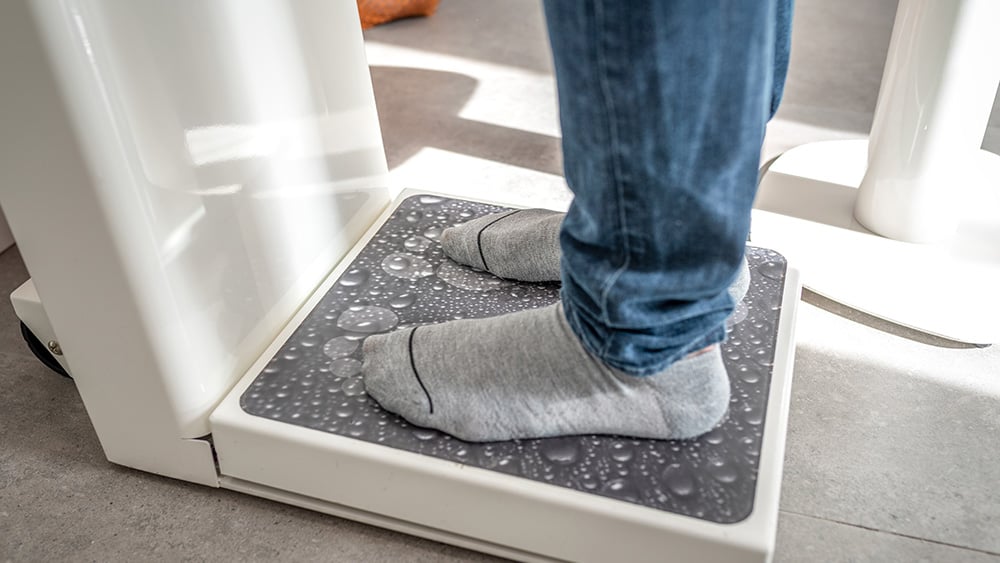Key Takeaways
- Unintentional weight loss refers to losing weight without changes in appetite, diet, or physical activity.
- Several medical and mental health conditions can cause unintentional weight loss, including chronic disease, cognitive decline, mental health conditions, medications, nutrition issues, and more.
- If the weight loss is sudden and significant or happens with other symptoms, get in touch with your primary care provider.
Unintentional weight loss in older adults is often overlooked or dismissed as a normal part of aging. However, this change can be a red flag for underlying health conditions that require prompt attention. Recognizing the potential causes and knowing when to seek medical advice can make a significant difference in outcomes.
Our primary care experts explain common causes of unintentional weight loss, when to seek help, and how to maintain a healthy weight.
Common causes of unintentional weight loss
Unintentional weight loss refers to losing weight without trying - so without changes in appetite, diet, or physical activity. In older adults, a loss of more than 5 percent of body weight over 6 months is typically considered concerning, especially if there is no clear reason.
Several medical and mental health conditions can cause unexplained weight loss in seniors, including:
- Chronic diseases: Conditions such as heart failure, chronic obstructive pulmonary disease (COPD), or kidney disease can lead to appetite loss and weight reduction.
- Cognitive decline: Dementia or Alzheimer’s disease can impact attention to food, eating habits and food intake.
- Mental health disorders: Anxiety and depression are common in older adults and may show itself as decreased appetite.
- Medications: Some prescriptions, supplements or drug interactions can suppress appetite, alter taste, or cause gastrointestinal upset.
- Malabsorption issues: Problems with nutrient absorption, such as those caused by Celiac disease or intermittent diarrhea, can lead to weight loss.
- Cancer: Disease cause changes in appetite or metabolism and lead to unexpected weight loss.
- Social and lifestyle factors: Isolation, financial limitations, or difficulty preparing meals may also contribute to reduced food intake.
When to seek help for unintentional weight loss
Unexplained weight loss should never be ignored. It’s important to consult a healthcare provider if:
- The weight loss is rapid or significant.
- There are other symptoms, such as fatigue, weakness, confusion, or changes in mood.
- The patient has known chronic conditions that may be worsening.
“If any of these situations develop, ask your primary care provider about a comprehensive medical evaluation,” said Stephen Ryan, MD, a geriatric medicine and palliative care physician at Rochester Regional Health’s ElderONE PACE program. “This can help identify the root cause and guide appropriate treatment or intervention.”
“If you noticed changes such as digestion issues, swelling in your ankles, a change in your skin or breast, alert your primary care provider,” said Lorinda Parks, MD, a family medicine physician at Rochester Regional Health Family Medicine – Ridgeway and Medical Director of Monroe West.
How to maintain a healthy weight
Maintaining a healthy weight is essential for preserving strength, mobility, and overall well-being in the later years of life.
Family members, caregivers, and healthcare providers should work together to monitor nutritional intake, encourage regular meals with healthy proteins, fruits and vegetables, and ensure access to support when needed. Eating with others often brings joy to people’s lives.
Routine medical and dental health checkups are important, as well as preventative screenings like colonoscopies and mammograms. Regular physical activity helps in keeping a healthy, consistent weight.
While some weight changes may be expected with age, unintentional weight loss could point to an underlying condition. If detected early, conditions can be managed more effectively to support a healthier and more independent life.











